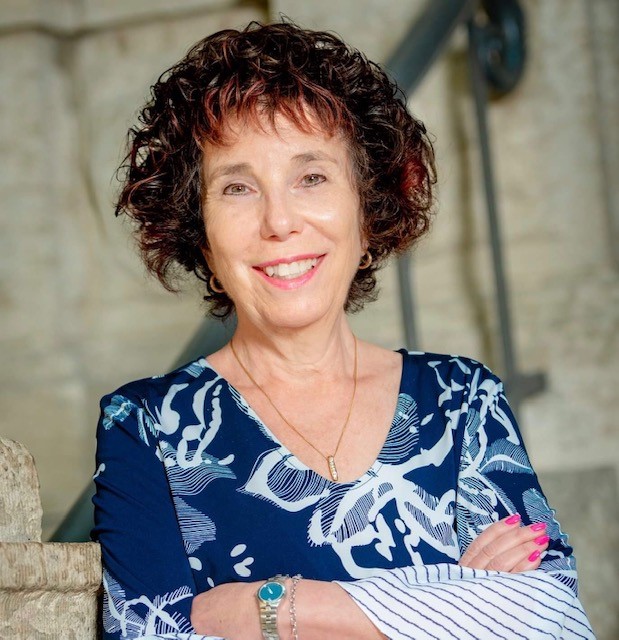Local News
Gwen Secter Centre and Jewish Child and Family Service working together to provide much needed help for seniors in our community
 By BERNIE BELLAN
By BERNIE BELLAN
Beginning two months ago, I’ve been reporting on the incredible job that the Gwen Secter Centre has been doing in providing meals for seniors in our Jewish community since the Province imposed a lockdown on March 13.
As I noted in our May 27 issue, Gwen Secter has gone from producing 60 meals the week of March 30-April 3 to 286 meals for 73 different individuals in late May. This past week, according to Becky Chisick, Executive Director of the Gwen Secter Centre, 340 meals went out to seniors.
I had asked Becky whether there is anyone in particular who deserves a shout-out for what Gwen Secter has been doing?
She wrote: “The shout-out really needs to be going to our volunteer drivers. The routes are increasing and get larger in size. A number of people have come forward to volunteer their time and we are still looking for more. I also have a part-time volunteer meal coordinator, Lauren Cogan. Lauren is helping with on boarding new seniors, coordinating volunteers and making calls to everyone on delivery days. “ (We have a full story about Lauren Cogan in this issue and the extremely active life she leads on page 7.(
Working hand in hand with the Gwen Secter Centre has been Jewish Child and Family Service, which has a large number of senior clients. (The JCFS typically serves between 500-600 seniors a year, according to JCFS Executive Director Al Benarroch.)
Here’s how the JCFS Annual Report described its older adult services: “Older Adult Services is a program designed to support the needs of Jewish elderly living independently in the community. Services ensure an optimal level of psychological, social, cultural, emotional and physical functioning in clients, thereby maximizing their quality of life and allowing them to remain at home and age in place.
“Aging Mental Health is a focused program that addresses the needs of our aging clients who also are living with mental illness and/or other chronic emotional problems. This area provides highly specialized, crossprogram services to clients requiring unique supports for a variety of issues, including those arising from psychiatric illness, memory loss and isolation.”
In addition, JCFS also provides services for Holocaust survivors.
I asked both Becky Chisick and Cheryl Hirsh Katz, Manager, Adult Services at JCFS, whether they could provide me with some names of seniors who might be willing to talk about what Gwen Secter and JCFS have been doing for them during a time when seniors, in particular, are isolated and experiencing much higher levels of anxiety.
In response, I was given the names of six different individuals who, I was told, were willing to speak with me about their experiences. For the purposes of this article, I am using different names for the individuals with whom I spoke, in order to preserve their anonymity. Each of the individuals with whom I spoke lives alone.
“Lisa” told me that (like the 70 other seniors who have been receiving meals from Gwen Secter), she’s been getting four meals a week – two on Tuesdays and two on Fridays.
I asked Lisa how she was put in touch with Gwen Secter to start receiving meals.
“My worker at JCFS is Heather Mandel Kraut,” Lisa explained. “Heather had asked me whether I could use the service (Gwen Secter’s food deliveries)” when the Province imposed the lockdown.
In Lisa’s particular case, while she is able to get out on her own, because of a physical condition, “it’s hard for me to stand – even for the five minutes it usually takes to put together a meal”, she noted. Also, because it’s hard for her to remain on her feet, she does have someone doing shopping for her.
I asked Lisa what she does to supplement the meals she’s been getting from Gwen Secter.
“I’ll buy a chicken and roast it,” she said. She also prepares salads and side dishes but, like the others seniors with whom I spoke, Lisa doesn’t eat a huge amount, so she’s been able to stretch the four meals that she’s been getting from Gwen Secter.
Lisa told me that each time there’s a delivery from Gwen Secter, one meal is meat and one is milk. The meat meals which, she said can be anything from chicken to sweet and sour meatballs, to turkey sausage, to brisket (occasionally), are all accompanied by “a carbohydrate and some kind of vegetable”, Lisa noted.
But, because Lisa is also diabetic, the kitchen staff at Gwen Secter have been careful not to include any items containing sugar in her particular meals so that, in a dairy meal with blintzes, for instance, the strawberries that come with the meal have no sugar.
Something else that Lisa mentioned is that, while she did grow up in a Jewish home where she loved her “baba and aunt’s cooking”, it’s been a long time since she had tasted many of the foods that were so familiar to her as a child. Having lived away from Winnipeg for years, it’s only been since she started receiving meals from Gwen Secter of late that she’s been able to conjure up memories of her baba’s and aunt’s meals.
“I was incredibly lucky in my life to have a baba and aunt who made fabulous meals and the Gwen Secter meals have comparable taste,” Lisa said. “The meals have the traditional edge to them” that she so fondly recalls from her childhood years; eating those meals “brings it all back,” she added.
And – as a sign how thoughtful the Gwen Secter staff has been in arranging those meals, Lisa observed that there “have been extras as well – like boxes of matzah during Passover” and, more recently, challahs on Thursdays.
(I asked Becky Chisick when challahs started to be included with the Thursday deliveries and who’s been providing them? She responded: “We’ve been including Challah for the past few weeks on our Friday deliveries. This was something I really wanted to do for the seniors who are isolated. I felt it was important to bring a little Shabbat into their homes. The challah is not donated, but City Bread is helping us out with a much appreciated deep discount to help stretch our funding dollars. I’m happy to hear everyone is enjoying.”)
*****
“Norman” returned to Winnipeg last year after having lived elsewhere most of his life. In his case though, as a result of an injury, he hasn’t been able to get out, but he is rehabilitating his injury and hopes to be fully functional sometime soon.
In the meantime, his worker at JCFS also told Norman about Gwen Secter’s food delivery program, and he’s most appreciative.
“I do get around with a walker,” he added, but “getting the meals is very helpful”.
I asked him whether the portions in the meals provided by Gwen Secter are sufficient?
“I’ve lost a lot of weight” (since his injury and subsequent operation), Norman answered, “so my eating habits are different – and the portions are sufficient”.
But then Norman mentioned that there are some items in the meals delivered by Gwen Secter that he doesn’t eat, such as potatoes or perogies. I said to him that he should simply let the Gwen Secter staff know that there are certain foods he won’t eat, and I was sure substitutes could be arranged. (I told him about Lisa’s diabetes and how Gwen Secter made sure there was no sugar in any of the foods in her meals.)
Something else that Norman said – and which is probably typical of many of the seniors who have found themselves availing themselves of Gwen Secter’s assistance, is that “I would like to not use it (the food deliveries) so that someone else could use it.”
By the way, Norman had not even heard of JCFS when he returned to Winnipeg last year, so being able to receive assistance from that organization came as a most pleasant surprise.
“JCFS has been very helpful to me,” he noted – “and very supportive – by phone or by email – on an as-needed basis.”
As for the Gwen Secter Centre, again – like JCFS, Norman had never heard of that organization either, and he is deeply appreciative of what the Gwen Secter Centre has been able to do for him.
*****
“Bonnie” has been a client of JCFS in the past but, like Norman, she had been living away from Winnipeg for years.
Unlike Lisa and Norman, however, Bonnie hasn’t had to avail herself of the Gwen Secter food delivery program. She is able to get out and do her own shopping.
In Bonnie’s case, however, it wasn’t a physical condition that led to her contacting JCFS. She has a psychological condition, “but I couldn’t afford to pay a psychologist or a therapist,” she explained.
Yet, Bonnie was not aware that JCFS provides services for individuals such as her. Once she was told though about JCFS’s services for seniors and other individuals with psychological conditions, she did get in touch with JCFS and has maintained weekly contact with a social worker assigned to her case ever since – most recently via ZOOM.
Ever since the provincial lockdown was imposed, Bonnie said she’s been in weekly contact with her social worker. (It used to be only once every two weeks, she noted.)
“The social worker has been really wonderful,” Bonnie said.
*****
The final senior with whom I spoke was “Anne”.
In Anne’s case, she explained, “I have arthritis, so I’ve been stuck using frozen meals.”
“I usually shop at Walmart” (online), Anne said, but “I couldn’t get online” because Walmart’s system was so inundated with users.
“I also tried Cantor’s (early on during the lockdown), “but they were rationing groceries, – things like sweet potatoes,” Anne noted.
“So, I started using Save on Foods for deliveries,” she said, “but they’re quite expensive.
“Then Dan (Saidman, Program & Volunteer Coordinator at the Gwen Secter Centre) phoned me. He knew I’d be in trouble, so he asked me whether I wanted to start getting meals from them – which I did, right from the start” (in late March).
For Anne, just like Lisa and Norman, the meals from Gwen Secter have been a Godsend.
*****
Finally, I spoke with Cheryl Hirsh Katz of JCFS to ask whether there has been an increase in the agency’s caseload of seniors.
Cheryl indicated that has indeed been the case – primarily as a result of the Jewish Federation’s having enlisted volunteers to call seniors (and other individuals in the community who find themselves in particularly unfortunate circumstances as a result of the pandemic). Many seniors have been referred to JCFS as a result of those phone calls, Cheryl noted.
“We’ve identified those of our clients who are most in need,” Cheryl said, and have been keeping close tabs on them, including “sending out 50 care packages to some of the most isolated seniors with plans to send an additional 50 to another group of isolated seniors. Our plan is to do this once or twice per month while this pandemic lasts.”
“We have capacity to take on more clients,” Cheryl noted – and 20 more clients have now been added to JCFS’s caseload to this point.
While JCFS does maintain an “emergency food pantry” to help individuals or families in urgent need of groceries, “there hasn’t, as yet, been an increase in demand”, she said.
What there has been though, is “an increase in demand for emotional support,” Cheryl observed.
“Individuals who have had illnesses” have found themselves isolated and, one other agonizing aspect of the isolation we’ve been enduring is that, for those among us who have lost loved ones during the past three months, it’s been an especially difficult grieving period.
“We have our friendly volunteer phone callers; also our own workers are regularly calling clients”, Cheryl said, but for those seniors who could use some emotional support or would like to be added to Gwen Secter’s food delivery program, the JCFS welcomes your calls.
The JCFS phone number is 204-477-7430. The Gwen Secter Centre’s phone number is 204-339-1701.
Local News
Cheryl Hirsch Katz, Jewish Child and Family Service’s longest serving staffer, set to retire at end of the month

By MYRON LOVE “I loved working at Jewish Child and Family Service,” says Cheryl Hirsh Katz, who is due to retire at the end of June. “I have always appreciated the warm and welcoming atmosphere here. I feel that the people working here are my extended family. I am going to miss my colleagues”.
“I have derived great satisfaction over the years to have been able to help many people in our community of all ages through my work at JCFS,” she continues.
After 44 years at the agency, Katz, the longest-serving member of the staff, was given an appreciative send-off at the JCFS’s recent (June 23) Annual General Meeting at the Shaarey Zedek Synagogue.
The daughter of Art and Bess Hirsh, Cheryl grew up in Garden City. She attended Peretz School, then Jefferson Junior High and Garden City Collegiate. She joined the staff of JCFS in 1981, shortly after receiving her Bachelor of Social Work degree.
She earned an MSW in 1990.
“I chose to become a social worker,” she recalls, “because I always wanted to be able to help people.”
Katz was originally hired by JCFS to work with newcomers. After a couple of years, she was given responsibility for looking after the needs of older adults.
“I really enjoyed working in older adult services,” she says. “That is where I spent the bulk of my time at JCFS.”
After ten years as a case worker, she was promoted to a supervisory role. Later, she was also given responsibility for mental health and addictions programming and settlement services, while keeping the older adult files under her purview.
“As a supervisor, I wasn’t directly involved with individual clients,” she points out. “I was more involved with programming. Among the programs for seniors we organized were – for example – sessions on elder abuse, digital storytelling and memory loss.”
She notes that one of the trends she has seen over the last 44 years is that people are living longer and living in their homes longer. A lot more of our clients are living well into their 90s,” she observes. “We have had to continually expand our staff and the services we provide in order to accommodate the growing demands of an aging population.”
She also spoke of the mental health needs of seniors and aging Holocaust survivors.
She says that she has mixed feelings about leaving JCFS. “After so many years working full time, I am going to have to create a new routine,” she comments.
She notes that, now that she is retired, she will have more time to spend with her parents – who are in their 90s.
And then, there are the two dogs to look after. “I will have time now to try new activities,” she says. “ I might learn to play mah-jong.”
She speaks about maybe doing some traveling – although her husband, Murray, is still working full time.
(She and Murray have one daughter, Farah.)
“Retirement may also include some volunteering,” she adds.
It is quite likely, she will be continuing her association with JCFS but in a volunteer capacity.
Local News
Gray Academy students shine in provincial, national debating competitions

By MYRON LOVE It has been another good year for Gray Academy’s high school students who participated in provincial and national debating competitions. The best results were recorded by Grade 9 student Noa Mednikov, who finished fourth overall nationally, fourth in interpretive reading, and fifth in persuasive speaking at the junior National Public Speaking Championship in early May in Vancouver.
Last October, in the Junior Provincial British Parliamentary Championship – which was held at St. John’s-Ravenscourt – Noa and her partner, Raya Braunstein, finished third as a team while Raya placed third in individual debating.
Their fellow Grade 9 student Maxim Moscalenkov tied for first in persuasive speaking in Vancouver, while the Gray Academy team of Gabe Tapper and Aaron Koplovich finished fifth. Aaron also finished fifth in his individual debate.
Earlier, in March, Maxim finished fifth in the Provincial Juniors debating competition, which was held at Balmoral Hall He and his debate partner, Nate Shenkarow, finished seventh among the teams entered. Last November, he and partner, Ethan Tenenbein, finished seventh in the Junior Prepared Tournament – just behind the Gray Academy team of Nate Shenkarow and Jack Kay.
At the senior high level in that competition, the team of Jacob Tenenbein and Jonah Novoseller finished fourth and Jacob was recognized as fifth best in an individual capacity. Jonah and Jacob also paired up to win the Asper Cup, which was held at their home school.
Jacob represented Manitoba at the Junior National Speech Championship in Vancouver in May and, last October, he and Grade 12 Gray Academy students Julie Krozkin and Daniel Bokser represented Canada at an international debating tournament in Bermuda.
Gray Academy’s debating program was introduced by Linda Martin in 2003. She also led the debating teams at Balmoral Hall. In 2011, Martin was succeeded by Gray Academy high school English teacher Andrew Kaplan.
“Andrew has done a wonderful job with the debating program” says Martin, who has a debating trophy at Gray Academy named in her honour, as well as a provincial trophy for best individual junior debater. “Over the years, Gray Academy students have done very well in many local, national and international competitions,” she adds.
About three weeks ago, this writer had the opportunity to sit down with Andrew Kaplan and six of the school’s top debaters while they discussed the benefits of learning how to debate. According to Noah Strauss – who competed in the Junior Provincials at Balmoral Hall in March, public speaking leaves him with a feeling of accomplishment.
“It’s a good skill set to have,” he observes. “It builds confidence.”
“A benefit of being able to debate is that you learn how to convince people that you know what you are talking about,” adds Maxim Moscolenkov.
Raya Braunstein notes that being able to debate is a skill that she expects to be helpful in many university courses which she may choose to take.
As Andrew Kaplan notes, the ability to express yourself has a great impact in whatever career you choose to pursue.
He points out that debating is compulsory at Gray Academy for all Grade 7 and 8 students – and students can continue debating as an option in the higher grades
Of course, competitive debating is not for everyone. For those students who opt to take that path, the journey begins with internal school debate competition – with the top debating teams and individuals qualifying for local tournaments and – potentially – beyond.
Andrew Kaplan reports that a small number of high schools in Winnipeg and southern Manitoba have active debating programs – including St. Johns Ravenscourt, St. Paul’s High School, St. Mary’s Academy, Garden City and Maples Collegiates in the Seven Oaks School Division, St. Maurice (a Catholic School), as well as Morden Collegiate and Dasmesh, a Sikh private school.
Kaplan expresses his appreciation to the Asper Foundation and an endowment spearheaded by the Kives Family for providing funding for the Gray Academy debating program – as well as the Andrew Slough Foundation – which was established by his friends in memory of the outstanding former Ravenscourt student debater and lawyer who passed away suddenly two years ago at the still young age of 38.
I am confident that our Jewish community can look forward to the continued success of Gray Academy’s star debaters and to the continual emergence of future stars as the times goes by.
Local News
Antisemitism has crept into grade school in Canada

Antisemitism in Canada has moved beyond protests and politics; it is now entering classrooms and altering how Jewish children see themselves functioning within them.
A a university student I have observed the experience of my younger brother in grade eight as a Jewish student. Over the past few months, his school has been at the center of several deeply troubling incidents that have made him feel unsafe in our parks, community, and even his school. Swastikas were drawn around the community, in parks and ponds. Additionally, an older man, who claims to be a pro-Palestinian influencer, stood outside his predominantly Jewish school wearing a keffiyeh, filming a video which then circulated between students on TikTok.
This same man later showed up to our local Jewish community center in keffiyeh to allegedly watch his son play basketball where my brother and many of his classmates go for their lessons, basketball games, and Jewish events. These moments made him and his peers feel watched and targeted just for being Jewish. Local political representatives condemned the incidents and raised awareness about antisemitism, but the fear among students didn’t go away. The feeling of being targeted for simply existing has been taught to my brother, something my parents had tried their hardest to escape from.
Most recently, my brother was chosen to represent his school at a regional science fair. When one of the judges arrived wearing a keffiyeh, he froze. For many, including my brother after the incidents he has faced, the keffiyeh represents a political message. But even more so for my younger brother, it is tied to the fear and intimidation he had already experienced. He felt nervous, distracted, and unsure of how to act.
This is not about silencing political expression. It is about a child who came to share his ideas and left feeling uncertain and afraid. It is about the atmosphere forming in Canadian schools, where Jewish students are being made to feel targeted and unwelcome.
His school made an effort to address the incidents, but the impact is lasting. Posts on social media, much can be very vague at times about inclusion cannot fully undo the feeling of being singled out. A kind word from a teacher does not erase the fear that builds when threats are left unspoken but deeply felt.
I am writing this as a sister who watched her younger brother lose a moment that should have been filled with confidence and pride. He deserved to feel safe. So do all Jewish students in this country.
Moving forward, schools must take concrete steps to protect all students. Antisemitism cannot only be addressed when it becomes violent or overt. It must also be recognized when it appears as intimidation, symbolic targeting, or political messaging that creates fear among students. Children should never have to question whether they are safe in their own classrooms or community spaces.
Events that are meant to support and celebrate students must remain focused on them. Individuals who feel the need to bring political symbols or messages into school grounds or children’s events should not be welcomed in those spaces. Schools must make it clear that their environments exist to support learning, safety, and inclusion, not to host agendas that can intimidate or isolate students.
Administrators and educators must develop clear guidelines for identifying and responding to antisemitic behavior in all its forms. This includes strengthening security measures, offering ongoing staff training, and engaging directly with Jewish families to understand their concerns. Inclusion is not a one-time statement. It is a responsibility that must be reflected in everyday decisions and actions. No child should ever feel unsafe or unwelcome because of their identity.
The author is a Campus Media Fellow with HonestReporting Canada and Allied Voices for Israel who lives in Toronto.
